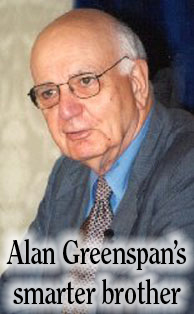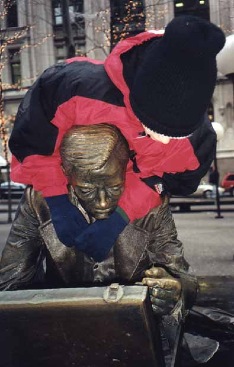I went to a high school run by the Jesuits. Think “Dead Poets Society” with Roman collars. The teachers were a little bit Pope John Paul II, a whole lot of Vince Lombardi, and, as is necessary to the development of young men, a healthy amount of Thomas Jefferson. The Jesuits are often admired for their ability to develop the “whole man”: intellectual, athletic, social, and most importantly, moral.
We were encouraged to be irreverent in the reverence of our school. The very irreverent actions we engaged in were seen by the Jesuits as an exhibition of curiosity. Pranks performed, under the guise of “school spirit”, were not only tolerated but encouraged. When it was suggested that one of our rival’s star basketball players was being bribed to attend a certain college, we waved checks in the stands when he attempted his free throws. Brother John, the Prefect of Discipline, may have handed down the ceremonial J.U.G. that day but the practice of pranks was generally tolerated.
Rarely did our pranks elevate to the status of unconscious insult. I say “rarely” because it did happen, about once a year. When it happened, it was usually the product of a good intention with garnered support from the crowd. In short, we took it just a bit too far without the forethought of the consequences of our actions.
The consequence was much harsher than a JUG; it was a speech attacking our moral fiber by none other than the President of the school. That sage old priest, a modicum of morality, started off the admonishment with a request to “walk a mile in the victims’ moccassins” and ended with the horrendous revelation that we, in our ignorance, injured some (or many) of those without the benefits we had.
Ouch! That admonishment always resulted in a bevy of boys, walking around with humble and contrite hearts, wondering if we would ever amount to the “whole man” St. Ignatius Loyola envisioned.
I’m going to digress from the high school story but I’ll bring it Read more

 Do you want to fight a war on poverty? A war on terror? A war on the senseless waste of the sole source of capital, the human mind? Here’s your chance. For two weeks in November, you’ll be able to buy two XO laptops, the One-Laptop-Per-Child computer, with one coming to you and the other going to a hungry young mind overseas.
Do you want to fight a war on poverty? A war on terror? A war on the senseless waste of the sole source of capital, the human mind? Here’s your chance. For two weeks in November, you’ll be able to buy two XO laptops, the One-Laptop-Per-Child computer, with one coming to you and the other going to a hungry young mind overseas. Inasmuch as we are living through the nightmare of Proposition 2, one might think we could learn a lesson. We won’t, and every eye was on the Fed this afternoon.
Inasmuch as we are living through the nightmare of Proposition 2, one might think we could learn a lesson. We won’t, and every eye was on the Fed this afternoon. Cathy and I watched The Path to 9/11 on television tonight. I had forgotten that we were in Metro New York for the Turn of the Millennium. My father lives in Connecticut, and we went there that year for New Year’s Day. The photo you see is my son crawling all over a bronze statue of a stock broker in Liberty Park, directly across from what was then the Merrill Lynch Building — on December 30, 1999.
Cathy and I watched The Path to 9/11 on television tonight. I had forgotten that we were in Metro New York for the Turn of the Millennium. My father lives in Connecticut, and we went there that year for New Year’s Day. The photo you see is my son crawling all over a bronze statue of a stock broker in Liberty Park, directly across from what was then the Merrill Lynch Building — on December 30, 1999.